Truth and Trust: a reflection on epistemology and Kindergarten
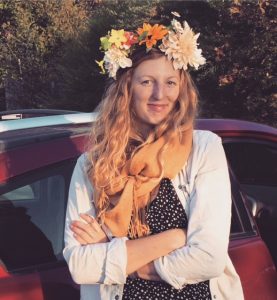 The following post is written by Emmy Gran, the recipient of HEI’s 2017 Young Scholars award for outstanding research in the field of holistic education. Here she discusses her reflections on knowledge, truth, trust and Kindergarten.
The following post is written by Emmy Gran, the recipient of HEI’s 2017 Young Scholars award for outstanding research in the field of holistic education. Here she discusses her reflections on knowledge, truth, trust and Kindergarten.
How do you know what you know? What are your trusted sources of information? The institutions of academe, science, and the news media that we have historically relied upon to provide us with “factual,” “objective” information have been slowly undermined by newer ways of knowing and the seemingly watery line between belief and fact. In this digital age, we are on the receiving end of a constant barrage of information without context or validation.
As I came to the end of my graduate education to become a teacher, I began to wonder how educators fit into this crisis of discerning truth from fiction and legitimizing certain sources of knowledge. In researching and writing my graduate thesis I dove deep into epistemology and emerged with even more questions. And then just a few short weeks later, I began teaching kindergarten.
As those little shining faces looked up at me, I realized that any teacher who doesn’t recognize the power and influence they wield in creating knowledge isn’t paying attention. Knowledge is rooted somewhere in the space between truth and trust. Truth from the Old English triewth meaning faithful or constant, and trust from Old Norse traust meaning strong; these two words just a few letters difference are so intimately intertwined. This dance between truth and trust begins with what emerges between parents and children. Children trust their parents and part of that trust is based on truth telling. As a child enters the outside world and encounters other sources of information, that foundation of truth and trust is tested.
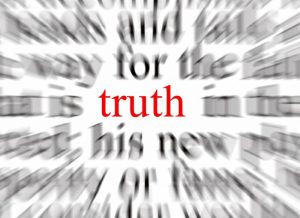 Holistic educators, like myself, aspire to be trustworthy, but not to be the arbiters or dispensers of “truth.” We want our students to be seekers of their own truth and become their own judges of both fact and belief in their lives. For me, an essential question is how do educators foster in their students a robust and useful understanding of truth?
Holistic educators, like myself, aspire to be trustworthy, but not to be the arbiters or dispensers of “truth.” We want our students to be seekers of their own truth and become their own judges of both fact and belief in their lives. For me, an essential question is how do educators foster in their students a robust and useful understanding of truth?
After engaging in a heuristics-based journey of scholarship around theories of truth, I came to several conclusions. My first and most important realization is that the search for truth and knowledge can only be conducted within a community. Parker Palmer calls these ‘communities of truth.’ “This model of community reaches deeper, into ontology and epistemology – into assumptions about the nature of reality and how we know it – on which all education is built. The hallmark of a community of truth is in its claim that reality is a web of communal relationships, and we can know reality only by being in community with it” (Palmer, 1998, p.97).
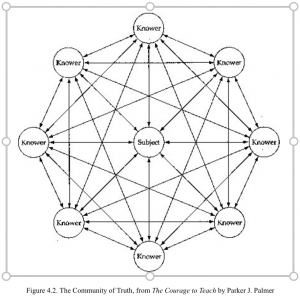 How does an educator create a community of truth within their classroom or school? My work on this subject has led me to eight indicators that are also practical, real-world prescriptions in the pursuit of truth. The eight concepts I have focused on that must be present in a classroom that nurtures students’ capacities as truth-seekers are: science, critical thinking, open-mindedness, allowing for failure, comfort in ambiguity and communion with the mystery, storytelling and art, independent thought and intellectual courage, and intellectual honesty and integrity.
How does an educator create a community of truth within their classroom or school? My work on this subject has led me to eight indicators that are also practical, real-world prescriptions in the pursuit of truth. The eight concepts I have focused on that must be present in a classroom that nurtures students’ capacities as truth-seekers are: science, critical thinking, open-mindedness, allowing for failure, comfort in ambiguity and communion with the mystery, storytelling and art, independent thought and intellectual courage, and intellectual honesty and integrity.
The stakes are high. Educators need to be activists in the realm of truth for our students and ultimately, for our society. I charge you (whether you are an educator, a parent or a human), to embark upon a journey to understand your relationship to truth and knowledge. How do you assess information for validity? How do you incorporate new information that contradicts your previous notions? What if the new data challenges core principles or beliefs? Are you open to new friendships and conversations that may cause you to rethink your prejudices or preconceptions? Do you take in news about the community, the state, the country and the world from a variety of sources? Can you differentiate in your mind between truth and belief?
As a busy classroom teacher, I understand how abstract theories of truth and knowledge creation may seem far from the task at hand. But essentially, all educators, including teachers of very small children, are in fact, academics. We are seekers of truth and cultivators of knowledge. Take that role seriously and enter the realm of Plato and Aristotle and others who have grappled with a central human problem: what is truth and how do we seek it? The struggle, I believe, will benefit students, the field of education and human knowledge as a whole.
If authenticity and integrity are at the center of a master teacher’s practice, can we practice what we teach. How can educators guide their students towards knowledge without truly understanding their own journey? I can’t pretend to have the answers to any of these questions, but I have embarked upon the journey. And I hope you will join me.
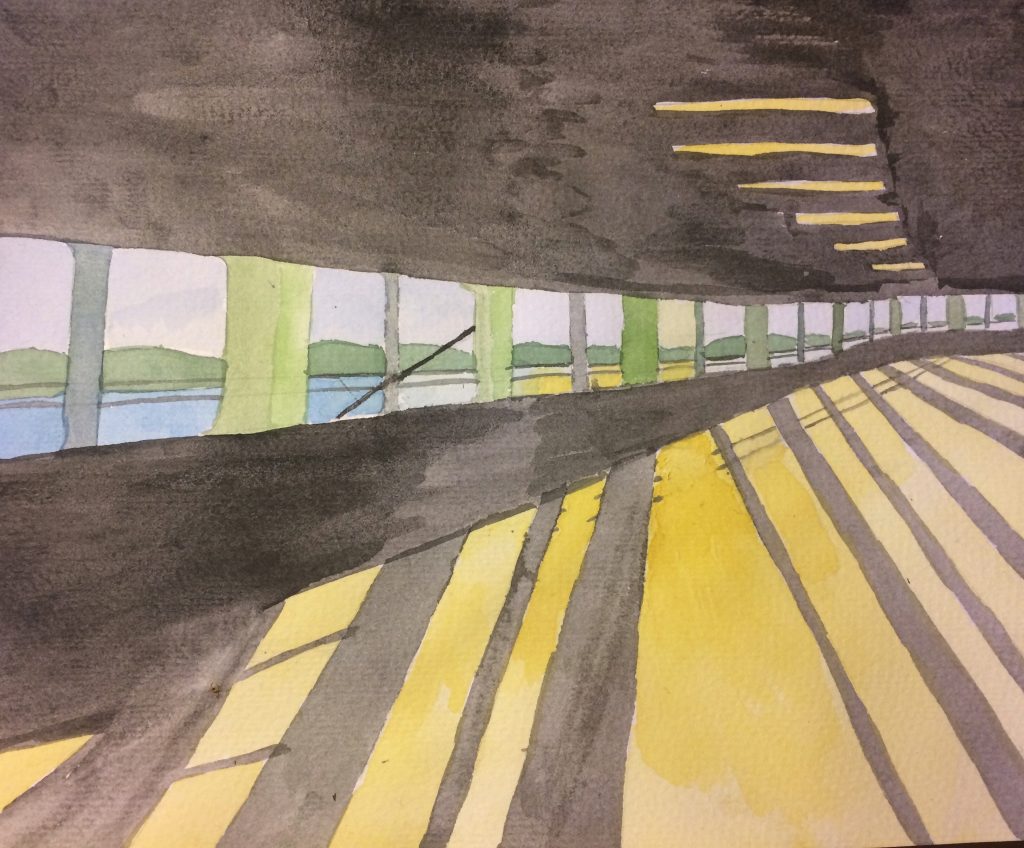

 Holistic Education Initiative
Holistic Education Initiative